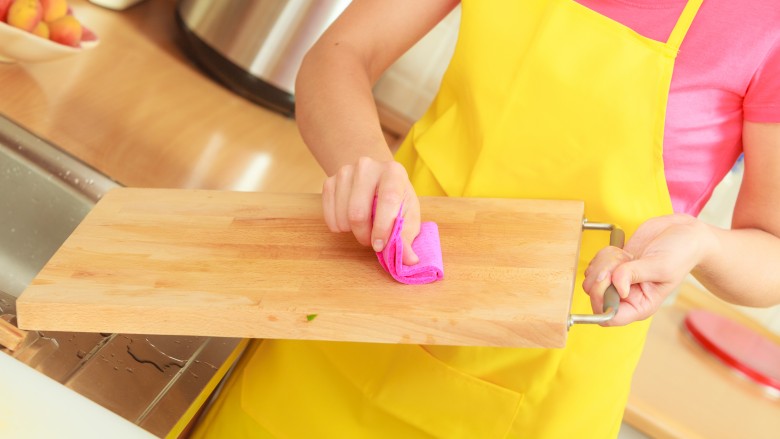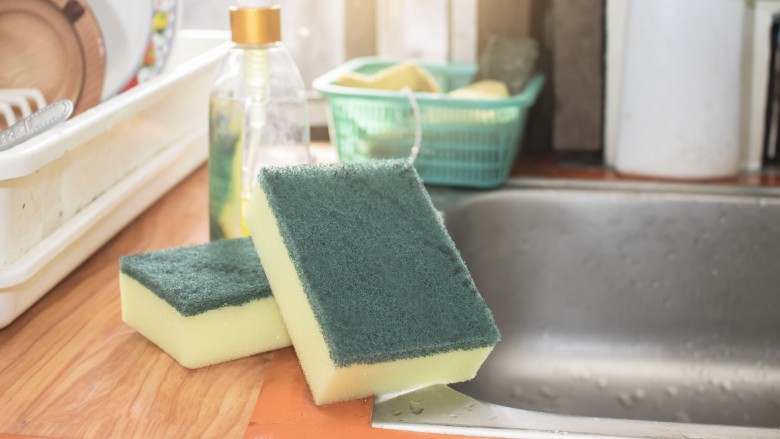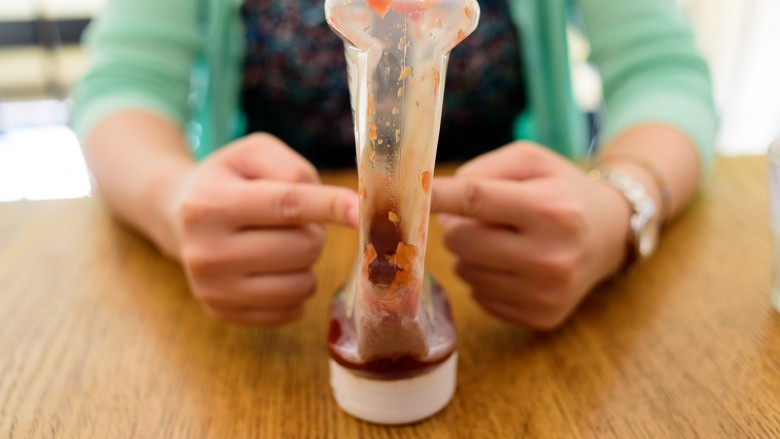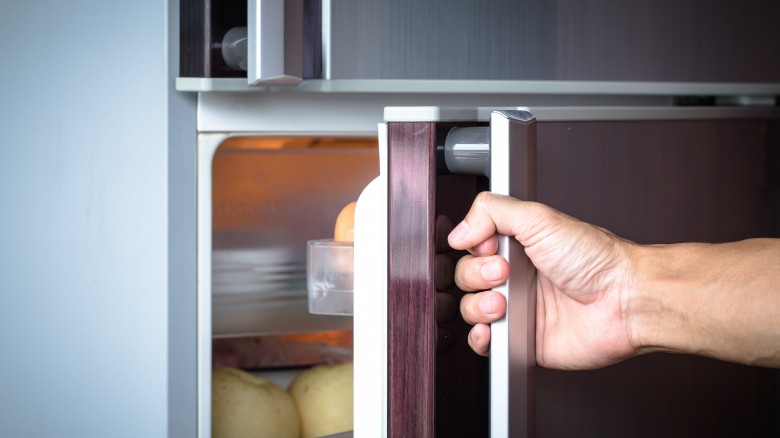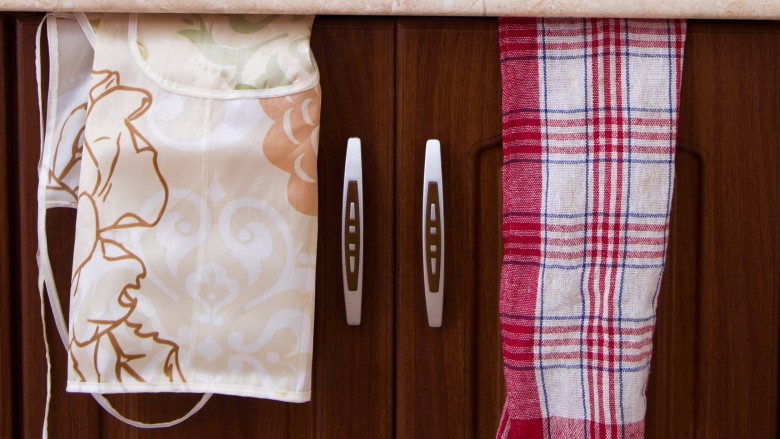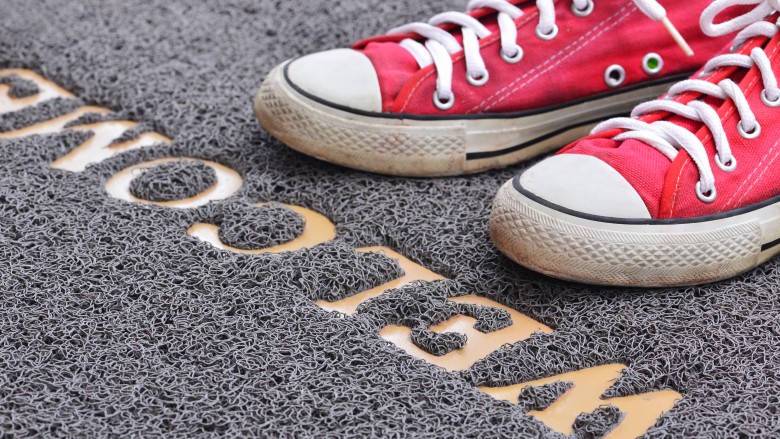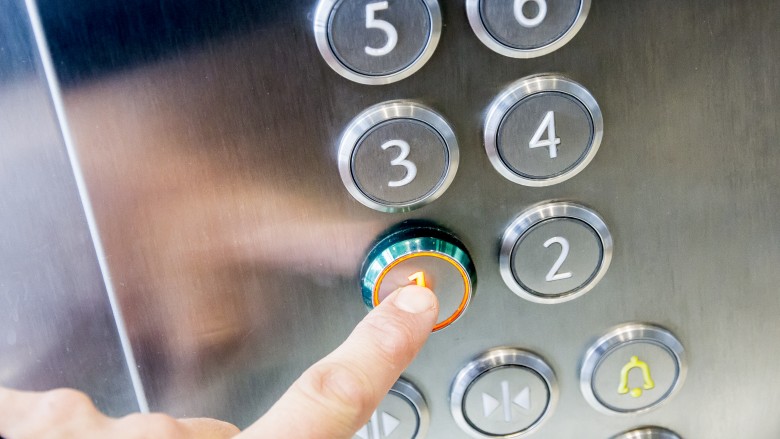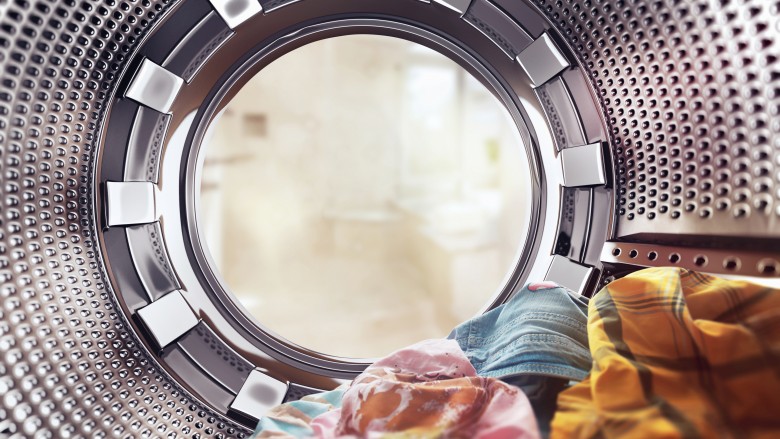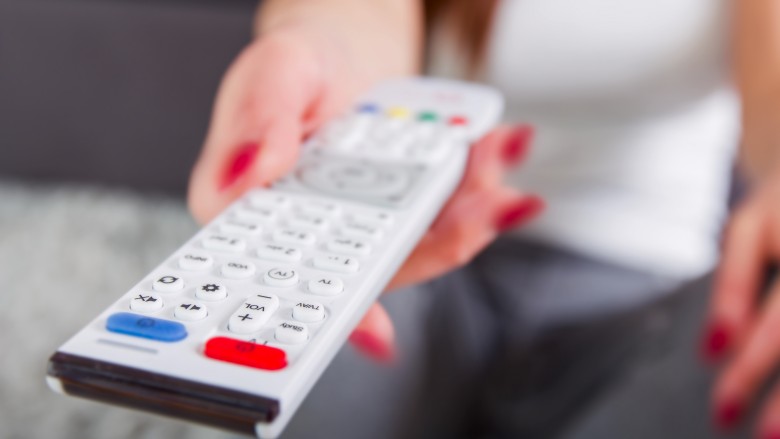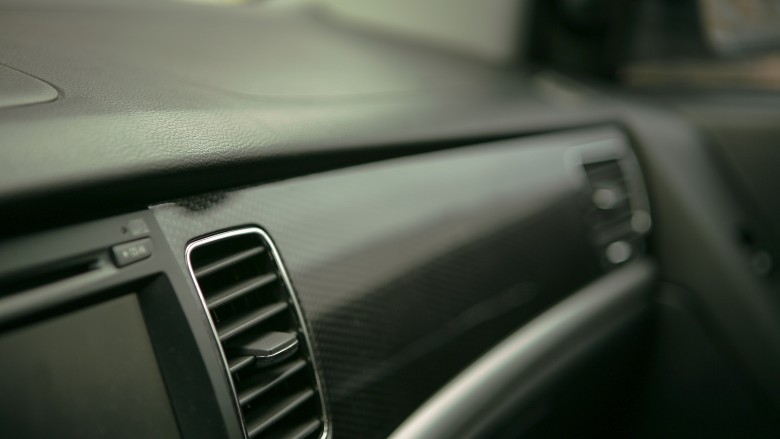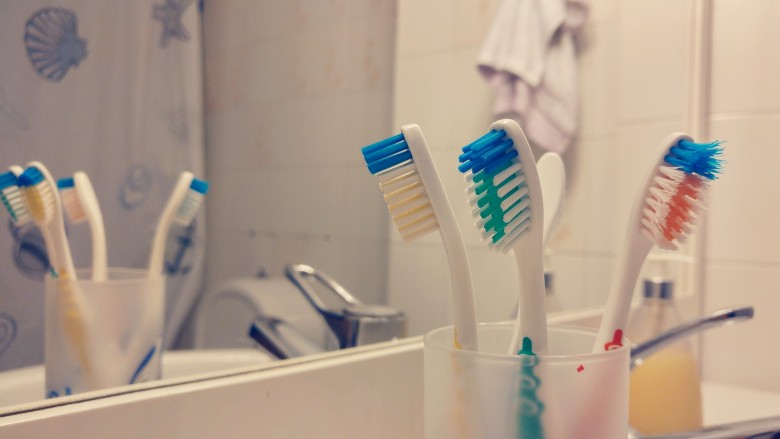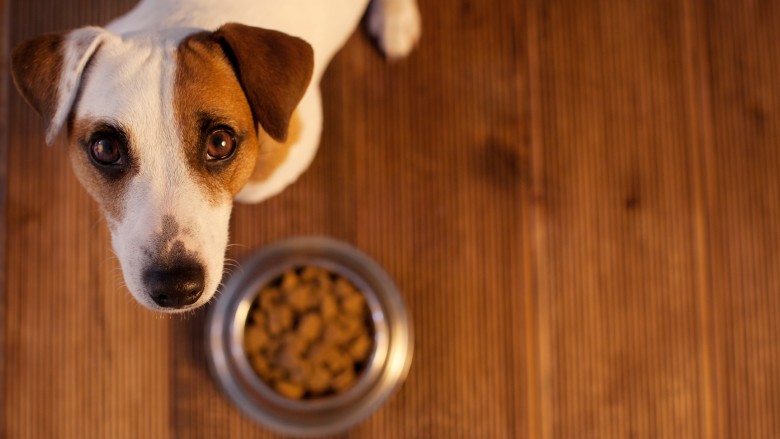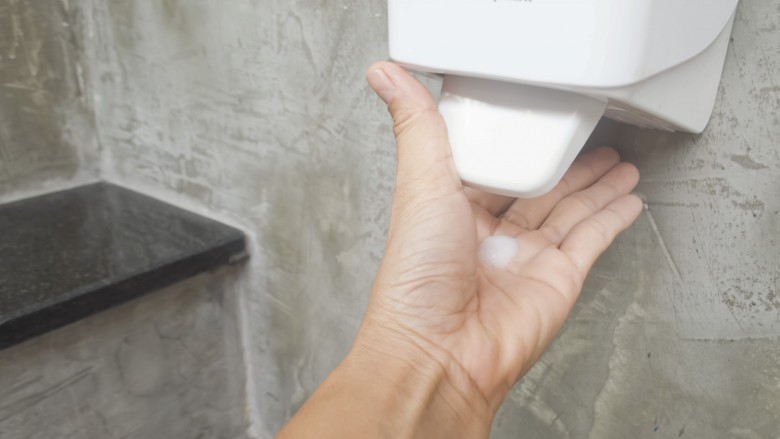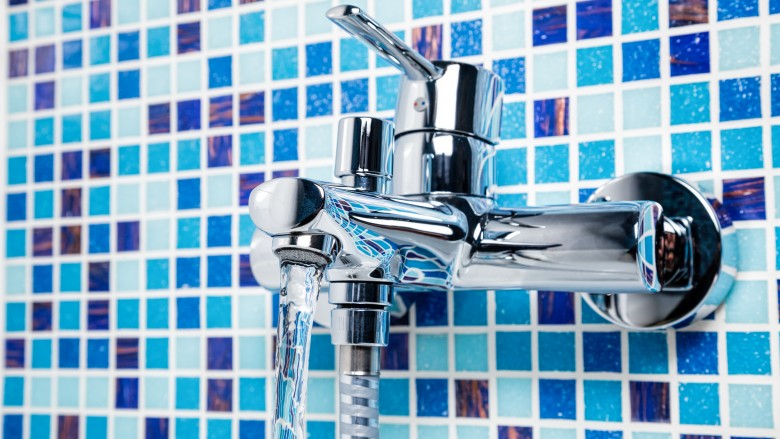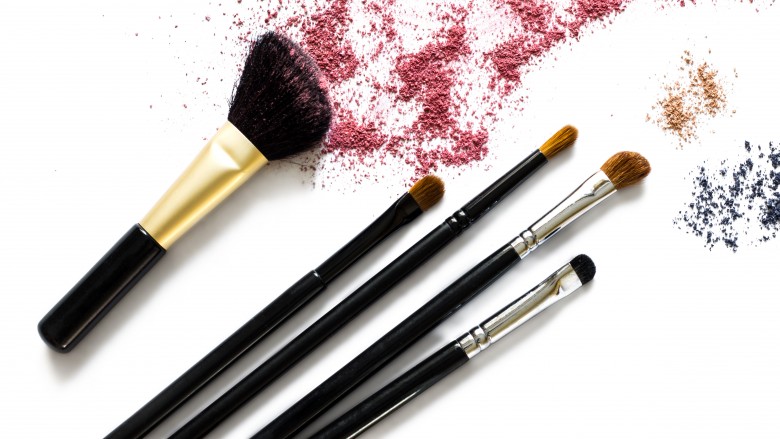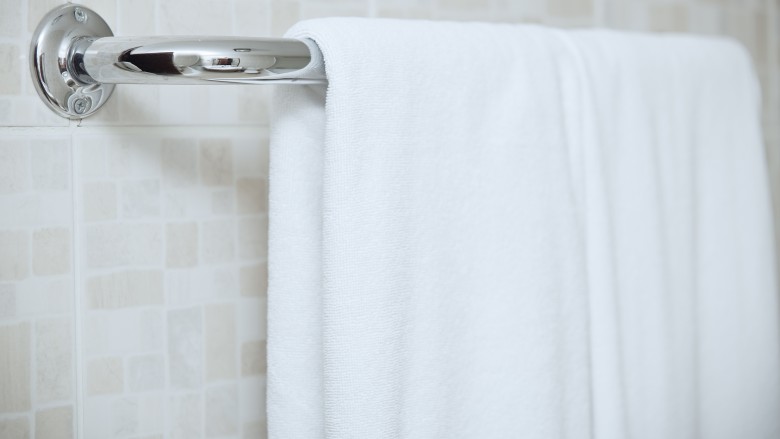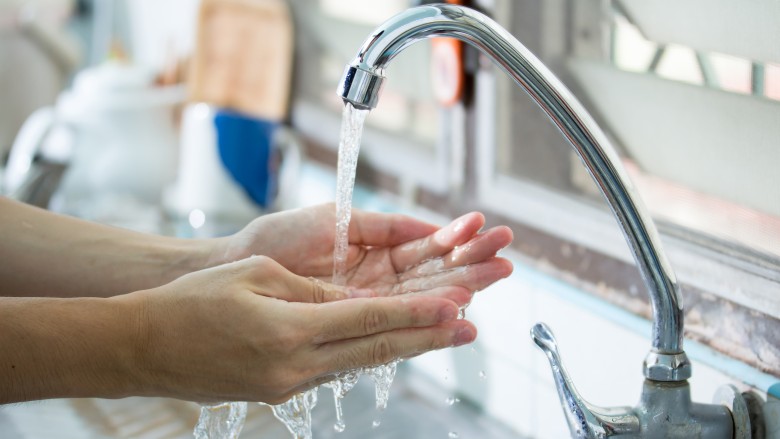The Grossest Things You Touch Every Day
I hate to break this to you, so brace yourself: almost everything you touch on a daily basis is practically covered in bacteria. And believe it or not, your toilet seats — even public toilet seats — are still a lot cleaner than anything on this list. Why? Toilet seats are cleaned and disinfected pretty often precisely because you expect them to be disgusting.
It's the stuff you tend to assume is clean (or that doesn't come to mind at all) that's actually going to light up a petri dish and potentially get you sick. So, all hands on deck — or not — for this grody roundup of the grossest things you touch every single day.
Your cutting board
Dr. Charles Gerba, professor of microbiology at University of Arizona, is nicknamed "Dr. Germ" for his work in the field — and he warns that preparing your food on a cutting board is basically cooking up a cesspool of bacteria. He explained to ABC News that the average cutting board has 200 times more fecal bacteria than a toilet seat does. Gross!
Why does that happen? Because many people just rinse off their cutting board after using instead of actually washing it. You can avoid being one of those people by wiping it down with a clean cloth using a pinch of bleach and some water.
Your kitchen sponge
How cruel is it that a tool you use to keep your house clean could actually be making everything worse? According to Reader's Digest, researchers in Arizona discovered that 10 percent of kitchen sponges contain salmonella. In fact, all sponges showed an average of 134,630 bacteria per square inch — more than 456 times more than, yes, a toilet seat.
They also contained more E. coli and fecal material than any other surface in the home. Dry heaving yet? Don't worry, there are some solutions. Each week, put your damp sponge in a microwave for 30 seconds to disinfect it (but not if your sponge has any metal in it) or toss it in the dishwasher. Replace them more often, or start using disinfecting wipes instead of sponges.
Condiment containers
Condiments on tabletops, whether in your home or at a restaurant, may give you more than an extra kick of flavor. Microbiologist Kelly Reynolds, PhD told Prevention that restaurant ketchup bottles are nasty because, well, people are. Most people don't wash their hands before eating, meaning that if you add ketchup to a meal when dining out, you're also adding germs to your own hands. (This applies to any other tabletop condiment and seasoning, too!)
Dr. Reynolds recommends squirting a bit of hand sanitizer on the outside of the bottles to prevent you from getting an infection from your seasoning — and always remember to wash your hands before eating anywhere.
Your refrigerator door handle
Dr. Birgit Winther shared (via Fox News) that your refrigerator door handle has almost as many germs as the inside of your refrigerator — and that you should probably clean them both more often. "We found that commonly touched areas like refrigerator doors and handles were positive about 40 percent of the time for common cold germs." Here's how to keep your refrigerator clean — using just hot water and dish soap — to keep yourself from getting sick.
Dish towels
Dish towels can be just as dangerous as sponges in terms of harboring germs. Prevention reports that seven percent of kitchen towels contained MRSA, (methicillin-resistant Staphylococcus aureus), an antibiotic-resistant bacteria that can often be life-threatening and lead to skin infections — and that's all on top of high rates of E. coli and other germs.
To keep your kitchen towels from getting you sick, stick with disinfectant wipes or paper towels when cleaning up spills or surfaces, only using kitchen towels to dry freshly-washed dishes. Be sure to launder kitchen linens, changing them out at least twice a week.
Shopping carts
Just think about it: a toddler with a runny nose and a soiled diaper might have sat where you're resting your baguette, and maybe he sneezed all over the handle. After he was gone, perhaps someone slapped a leaky package of raw meat in the same place. Delish!
Dr. Gerba told ABC News that almost half of shopping carts examined in one of his studies tested positive for E. Coli. So be sure to give yourself a rub-down with hand sanitizer and use a disinfecting wipe on the cart handle, before heading down the aisle.
Your welcome mat and shoes
Your door mat is as welcoming for guests as it is for germs. "The area near your front door is one of the dirtiest in the house," Dr. Reynolds told Prevention. Why? Take a minute to think about everywhere you and your shoes step in a day: the subway, the sidewalk, a puddle, maybe accidentally in dog poop — pretty gross, right?
Once the bacteria from your shoes land on the mat, Dr. Reynolds explained, every time you come in contact with it, you're dragging them around the rest of your house. You can stay safe by leaving your shoes by the door and spraying the mat with disinfectant weekly. And be careful not to rest anything else — like grocery bags — on the mat.
Your wallet and purse
You wouldn't rub your hands all over the floor of a train, a public bathroom, or the sidewalk, right? So don't put your purse there, either! Dr. Peter Barratt of Initial Hygiene said (via Medical Daily), "Handbags come into regular contact with our hands and a variety of surfaces, so the risk of transferring different germs onto them is very high, especially as bags are rarely cleaned. Once these germs are on the bags, they can easily be transferred via hands onto other surfaces. Regular hand sanitization is essential to prevent the presence of bacteria in the first place and thorough cleaning of bags is recommended to prevent the buildup of contamination."
Studies also showed that four out of five purses showed dangerous levels of contamination, particularly because you likely have makeup like mascara and lipstick — that come in contact with your eyes and mouth — hanging out in your germ-riddled handbag.
Don't carry a purse? You're not out of the woods. ABC News reports that wallets are pretty grimy, too. The money tucked inside them is germ-y from transferring to and from so many hands. And if you keep your wallet in a pocket close to your body, those warm temperatures create a hotbed for bacterial growth.
Elevator buttons
Just getting to the right floor of your office or the mall can get you sick if you're not careful. Dr. Gerba says that buttons everywhere (think ATMs, or credit card machines at the checkout line) are dirty, but that first-floor elevator buttons are particularly nasty. Why? "Everyone needs to go to the first floor."
He told ABC News that in order to avoid picking up germs, either wait for some other poor schlub to hit the button, or to use your knuckles, which are less likely to come in contact with your face and mouth later.
Your washing machine
Washing your underwear is important, but the correct method is just as important if you want to prevent germs from spreading from your skivvies to the rest of your body. Reader's Digest reports that a load of underwear can transfer 100 million E. coli bacteria into your washing machine, which can contaminate the rest of your clothing in the next load, because your washing machine is warm and damp — the perfect environment for germs to thrive.
You can prevent all that from happening by doing your laundry in the right order: wash your whites first, using bleach, before doing your colors. You should also disinfect your washing machine periodically (at least once a month) by pouring 2 cups of bleach into the detergent compartment, then running the machine on empty on the hottest cycle. Follow that, by wiping the inside of the machine dry and leaving the door open to air it out.
Your remote control
We're constantly touching, clutching, and sometimes sweating all over TV remotes and video game controllers. But how often do we clean them? Studies show that TV remotes are often the germiest surfaces in hotel rooms (pretty gnarly), as well as our own living rooms.
Dr. Abruzzo recommends to Web MD that you wipe down your remotes and controllers with bleach or alcohol wipes that are just slightly damp, being careful not to actually get them wet. And, of course always — you guessed it — wash your hands regularly.
Your car dashboard
Even when you're road-tripping to get away from it all, you're not getting away from all of the germs. Prevention reports that when air, which can often contain moisture, mold spores, and bacteria, gets sucked into your vents, it can deposit all that gross stuff all over the dashboard.
What's more, your dashboard gets the most sun out of any surface in your car, keeping it nice and cozy for any germs that want to nestle in and thrive there. Experts recommend wiping down your car interior's surfaces with disinfecting wipes, especially during allergy season.
Sofa arms
Don't get too comfortable: A Unicef and Domestros study (via Express) reports that the average sofa arm harbors 12 times the bacteria than a toilet seat! Frequent hand washing will help to curb this, and so will keeping your couch clean. Check your manufacturer's instructions before cleaning, especially for fabric and leather, and get some more tips here.
Almost anything in your office breakroom
You may want to take a break from your office breakroom, because lounging around there may make you use up all of your sick days. According to Time, a new study by Kimberly-Clark Professional found that microwave door handles, refrigerator door handles, faucet handles, vending machine buttons, and coffee pots and dispensers in offices each had potentially harmful levels of adenosine triphosphate (ATP), a molecule found in animal, vegetable, bacteria, and mold cells — one that indicates the likelihood of the presence of harmful viruses and germs.
"A lot of people are aware of the risk of germs in the restroom, but areas like break rooms have not received the same degree of attention," Dr. Gerba explained in the article. "This study demonstrates that contamination can be spread throughout the workplace when office workers heat up lunch [or] make coffee." The solution? Wipe surfaces with disinfectant wipes, and wash your hands!
Everything on your desk at work
The breakroom isn't the only gross area at work — your own desk is pretty grody, too. According to a study by Which?, microbiologist James Francis found that computer keyboards, not just at the office, but also at home, can contain dangerous levels of staph bacteria. Experts recommend cleaning your keyboard periodically with a can of compressed air and by shaking it out to release tiny particles between buttons.
Dr. Abruzzo recommends in Web MD, to wipe down your computer's surfaces, including your keyboard and mouse with alcohol or bleach wipes, as well as the surface of your desk itself, and your office phone if you have one. Another way to keep germ-free? Try not to eat at your desk too often — although, considering how gross the breakroom has proven to be, we understand if you want to!
Your cell phone
Brace yourself: Your phone may have fecal matter on it. Yep, a study from The London School Of Hygiene And Tropical Medicine reports that one in six cell phones are sporting residue from "No. 2", whether it's from not washing your hands or from texting on the toilet.
All that gross matter can lead to E. coli infections, as well as acne on the areas where your phone touches your face. Wash your hands, and clean your phone regularly. Need some tips? The New York Times has a great guide on how to do that without damaging your device.
Your toothbrush
Your mouth is full of germs, and even though your toothbrush is supposed to help get rid of those, it can actually harbor germs of its own if you're not careful. Picture it: Your toothbrush goes into your hot, wet mouth, then is left to dry in a humid bathroom, often right by your toilet. If you flush without shutting the toilet lid, guess what sorts of particles can fly onto your toothbrush? Yep. E. coli, listeria, and strep can all attack you from your toothbrush.
Stay safe by changing your toothbrush every three months (and whenever you're sick), closing the toilet lid when you flush, and keeping your toothbrushes in an upright holder far from the toilet. Real Simple recommends also running your toothbrushes, and their holder if it's dishwasher-safe, through your dishwasher's sanitizing cycle once a week.
Your pet's food bowl
Would you use the same spoon for three meals a day everyday and not clean it? Of course not! Well, your dog or cat's food bowls should be cleaned as often as your own.
Reader's Digest reports that unclean dog bowls can harbor up to 2,110 bacteria per square inch! Wash your pet's bowls after every meal using hot water and soap — especially if you let Fido kiss you on the mouth! (We're not judging.)
Your showerhead
The warm moisture that lingers after a hot shower can harbor a ton of germs inside your showerhead. A study from the University of Colorado-Boulder (via Medical Daily) reports that roughly 30 percent of showerheads contain dangerous levels of Mycobacterium avium, which is particularly harmful for those with compromised immune systems.
To easily disinfect your showerhead, experts recommend removing it, and then boiling it in a saucepan full of vinegar.
Your bathtub
Trying to escape the germs from showerheads by taking a bath instead? Think again, especially if that bathtub has jets in it. A Texas A&M study showed that 43 percent of whirlpool tubs had mild to dangerous bacterial growth, and that almost all showed signs of fecal matter. Yikes!
While standard tubs are gross because, well, we are gross, Whirlpool-style tubs in particular often have water trapped in their pipes, breeding bacteria which shoot out onto you once you turn the jets on. Cleaning and disinfecting your bathtub with bleach after each use will keep you at your cleanest. If you have a Whirlpool tub? Clean out your pipes!
Soap dispensers
Soap dispensers can be as filthy as the stuff the soap is supposed to clean off. Twenty-five percent of soap dispensers even have fecal matter on them. Uh, yikes!
"Most of these containers are never cleaned, so bacteria grows as the soap scum builds up," Dr. Gerba explained to Prevention. "And the bottoms are touched by dirty hands, so there's a continuous culture going on, feeding millions of bacteria." You can keep things much cleaner by lathering up for 15 to 20 seconds, and if you have hand sanitizer? Use that, too.
Faucet handles
This is actually an understandable one: you can't clean your hands without turning the water on first, right? So it makes sense that your bathroom and kitchen faucet handles have some really nasty stuff on them. A study by NSF International (via CBS News) reports 27 percent of bathroom faucet handles were festering with mold, and five percent harbored staph.
Cleaning your faucet handles daily with disinfectant cleansers or wipes can keep those gross germs at bay, as can using hand sanitizers after washing (like you'd do when using a public soap dispenser).
Your makeup brushes
Your makeup brushes, especially ones that come into contact with, or near, your eyes and mouth, may be more "germ" than glam. "Any bacteria on your hands or face contaminates the makeup when they come in contact," Dr. Elizabeth Brooks, a professor of biological sciences at Rowan University in Glassboro, N.J., told Fitness Magazine. That can result in infections like conjunctivitis (pink eye), skin rashes, and acne.
How to curb it? Wash your hands before applying your makeup, and be sure to toss your products when they expire. Don't share your makeup, and wash brushes often. If you don't have time to fully shampoo them, a quick alcohol wipe will help. Bonus? Your makeup will apply better if your brushes and sponges aren't covered in buildup!
Hand and bath towels
A University of Arizona study showed that your hand and bath towels may be super grody.
Dr. Barratt explained just why your hand and bath towels may be making you filthier than whatever you just washed off of yourself. "The three elements required to provide a comfortable environment for bacteria and microfungi are moisture, warmth, and organic material. Obviously, towels get wet. They also often sit in warm, moist bathrooms and washrooms, and pick up dead skin particles during use, which provides the organic food material for microbes to live on. It's skin infections that are the main risk, but if you can smell a mustiness around a towel, the chances are that it's bacteria and fungi that you can smell, and it's time for the washing machine."
The solution here is simple: change out your towels often and don't skip laundry day!
How to stay safe from germs
The biggest way to stay safe from germs is to wash your hands frequently. The CDC recommends washing your hands before, during, and after preparing food, before and after eating, after using the bathroom, before and after caring for a sick person, after changing diapers or helping someone else use the toilet, after sneezing, after coughing, after blowing your nose, after touching trash, and after touching — or picking up after — an animal.
And when you wash your hands is as important as how you do so. The CDC says to use warm or cold water, lather up for at least 20 seconds (being sure to wash the backs of your hands and between your fingers), and rinse well. Use a clean towel or air dry when you're done.
To keep your home, office, and other surfaces clean, using disinfectants like Lysol, disinfectant wipes, and bleach prevents germs from surviving long enough to get you sick. If you're cooking, be sure to read labels carefully and avoid cross-contamination. Be well!

